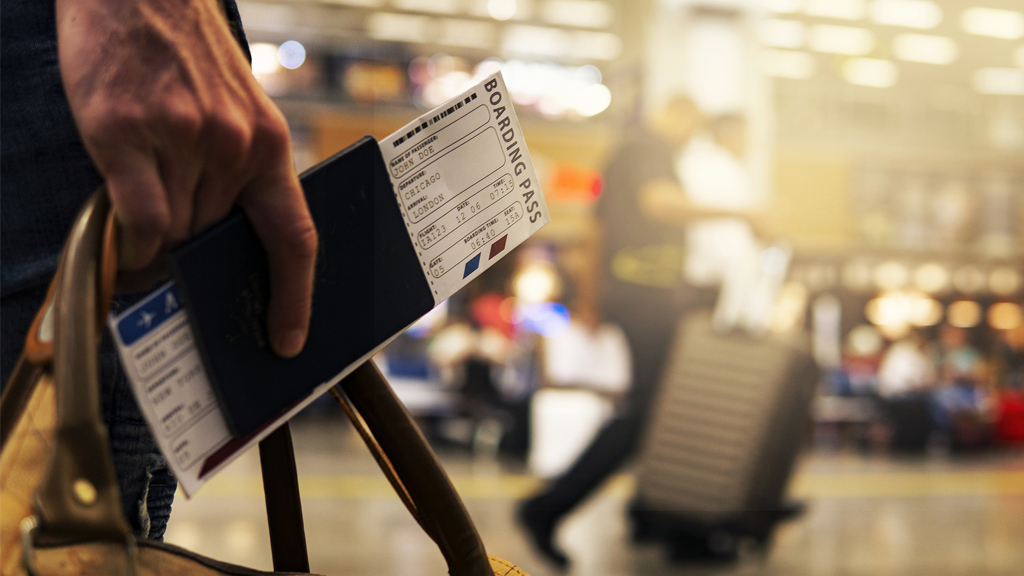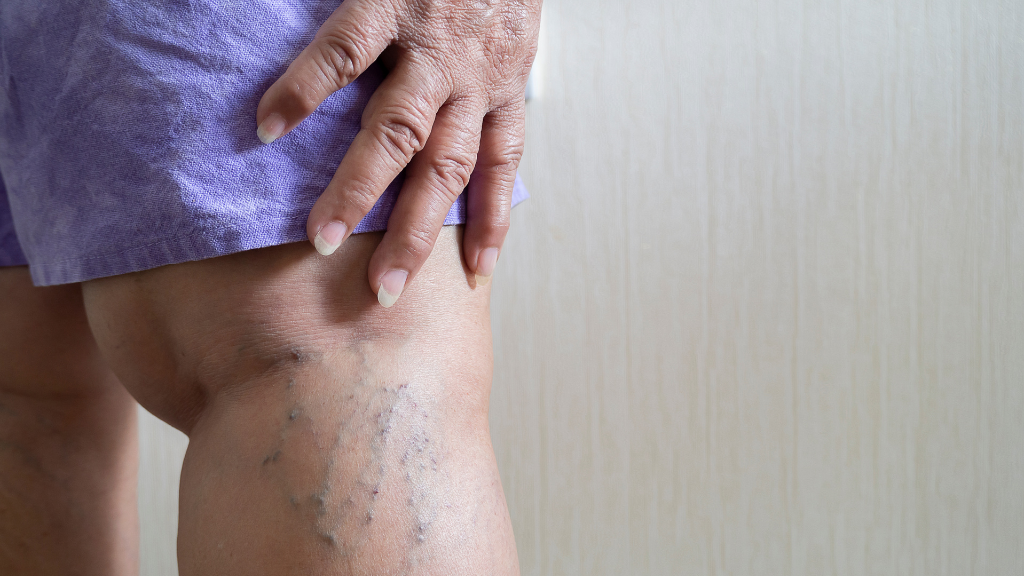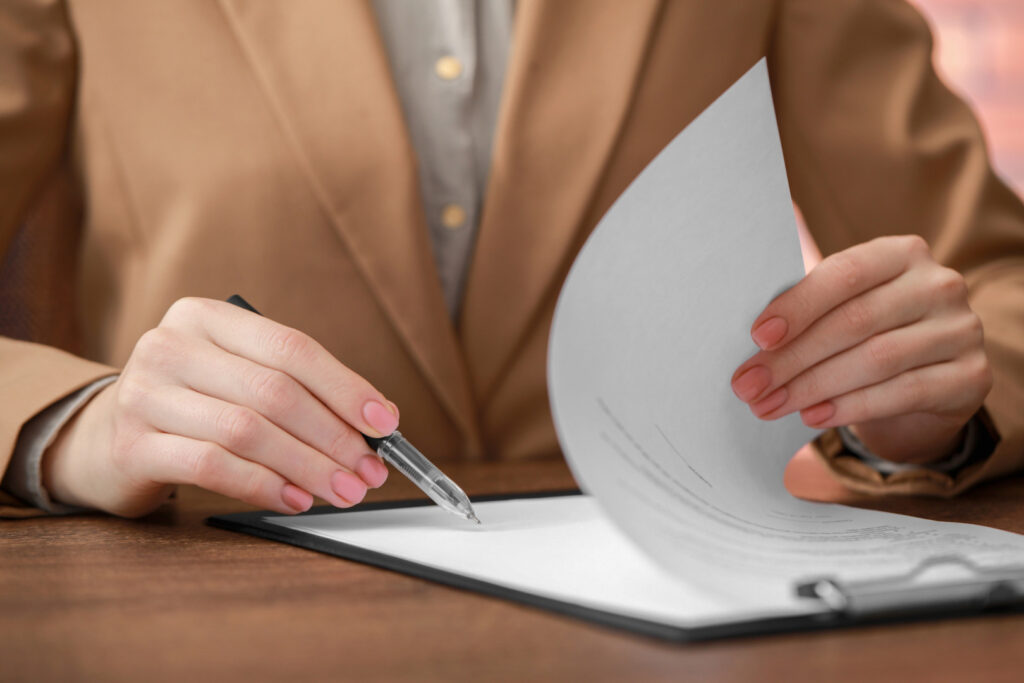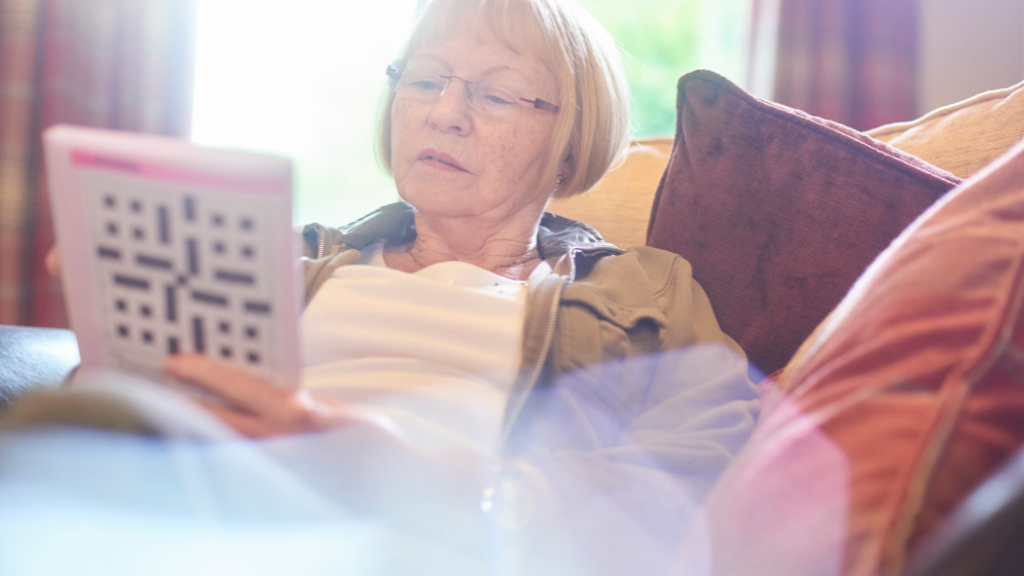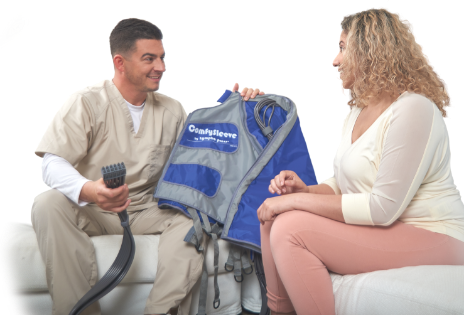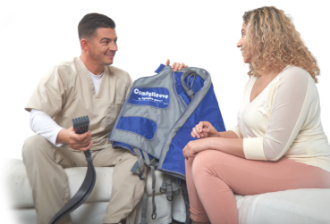This is a 6-minute read.
When you have lymphedema, traveling requires a bit of extra planning. The last thing you need while you’re on the road is a sudden flare-up of lymphedema symptoms.
Airplane travel has altitude changes that can cause extra fluid retention for those who are prone to inflammation. Many forms of travel, including buses, trains, and car trips, bring extended periods of sitting that can increase the risk of swelling and clotting in the legs.
A brisk hike or a long sightseeing tour can be risky for someone with lymphedema. Your legs might start to swell uncomfortably after being on your feet all day. You could risk infection from a cut. Or someone could simply bump into you in a crowd and create a stressful situation that impacts your health.
However, the risk of negative side effects is much lower with a few preventive steps. Here are four important things people with lymphedema should do before and during trips.
1- Consult With Your Doctor About Travel Compression
Before planning your trip, talk to your doctor about your compression needs and whether you need to apply additional compression bandaging at any point in your travels. Many lymphedema doctors recommend the application of compression bandages before air travel and up to 2 hours after arriving at your destination.
Compression garments can be worn instead of bandages. Many people find that properly fitted sleeves and stockings are more comfortable than bandages while traveling.
Also, any bandages, sleeves, or stockings must have firm but not excessive pressure. Overly tight wraps can do more harm than good, especially during airline travel with its changing altitudes and pressures.
2- Prevent Sores and Infection
Any skin irritation creates a potential point of infection. Wear shoes and clothing that won’t rub and cause blisters. Keep supplies on hand that will help you minimize the risk of a wound that could become a larger problem.
- Prevent infection with an antibiotic ointment and/or prescription as directed.
- Use anti-chafing powder to prevent rubbing irritations.
- Bring sunblock, bug spray, and antifungal treatments.
- Treat your feet, legs, and arms carefully, including while swimming and bathing.
Also, don’t engage in unnecessary activities that are likely to aggravate your condition like lifting heavy things and pulling awkward luggage long distances. Request help from travel crews as needed to protect your health.
3- Avoid Extra Stress During the Trip
Traveling often brings people into contact with large crowds at airports, tourist destinations, and entertainment venues. It’s important to acknowledge the potential impact of stress and social situations on your physical well-being.
Whether you’re an introvert or an extrovert, highly social and crowded situations can create added risks for people with lymphedema. For example, a busy wedding venue packed wall-to-wall with people makes it difficult to get around without being pushed and jostled. One wrong move, and you could sustain an injury that aggravates your lymphedema.
Stress has a known negative impact on lymphedema because stressful situations tend to create circumstances that lead to worsening symptoms. If you feel your stress rising during the trip, take a break. Do some deep breathing and relax with your affected limbs elevated.
4- Address Swelling and Symptoms Immediately
What if you attempt to minimize lymphedema symptoms but they arise anyway? Don’t ignore them.
When you’re traveling, you might prefer to worry about your lymphedema symptoms later and just have fun. But allowing your condition to worsen could have a life-changing impact. A two-week vacation is enough time for lymphedema that’s already worsening to move from one stage to another.
Lymphedema swelling and inflammation should be addressed as quickly as possible. One option is to bring along a lymphatic drainage machine that provides relief from inflammation, swelling, and pain.
Lymphedema pumps provide machine-assisted fluid movement that feels comfortable and relaxing. They’re as comfortable to use on the road as they are at home, so you don’t have to worry about traveling with lymphedema pumps.
A good example is the Lympha Press, which is backed by scientific studies showing its effectiveness. One study found that 85% of Lympha Press users said it reduced their discomfort and 94% would recommend it to a friend or family member.
One thing is for sure: You CAN travel comfortably when you have lymphedema. It just takes a bit of prior planning, so enjoy your trip!
Travel-Friendly Lymphedema Supplies
If you’re a lymphedema professional or patient, please review options for innovative compression pump home therapy equipment from Lympha Press. Our equipment supports active lifestyles for people traveling with lymphedema.
